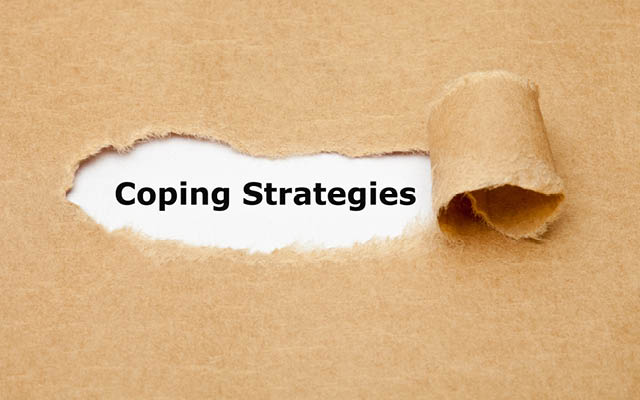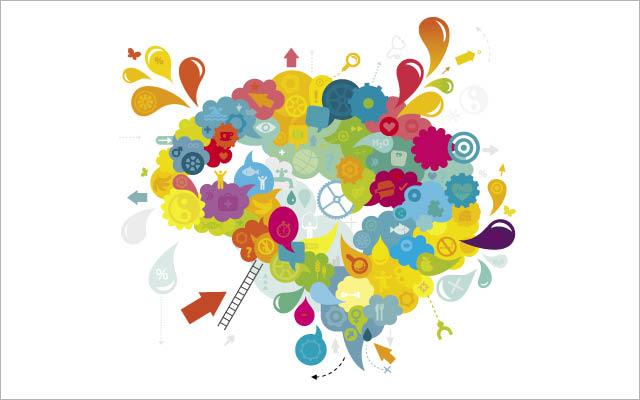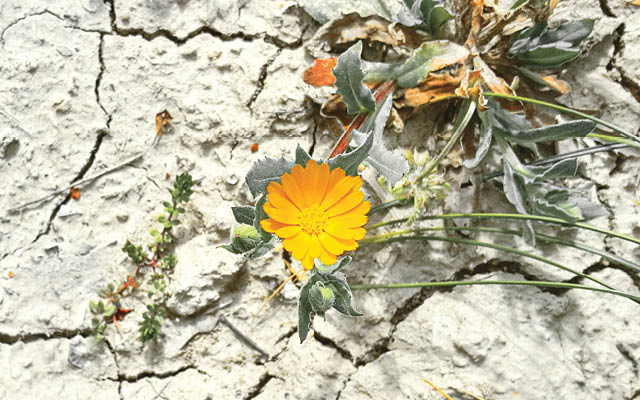We are all feeling confused and anxious about the coronavirus threat. How best to cope with these concerns and the mental-health stress raised by the pandemic? We spoke with our Natural Mental Health columnist Henry Emmons, MD, who is an integrative psychiatrist. He’s the author of The Chemistry of Joy, The Chemistry of Calm, and Staying Sharp; and cofounder of Natural MentalHealth.com. Here’s what he had to say.
Experience Life | The coronavirus epidemic is perhaps unprecedented in most of our lives: Are there things we can do to help ourselves and others cope?
Henry Emmons | I think it helps knowing that we are all in this together, and though it is unprecedented, there are things that we know we can do to reduce our risks and the risks to the community. Given that the infection is already subsiding in some countries, we know that its spread can be controlled with adequate testing, good hygiene, social distancing, and self-quarantine after exposure.
I think one of the most difficult things about this is that there is so much unknown. The mind doesn’t do well with uncertainty, and this is a perfect storm in that regard. Yes, it is normal to feel stressed, confused, or upset. It’s best to acknowledge whatever you are feeling at times like this, but also not to allow those feelings to take over. Fear can be every bit as destructive as the illness itself, as we are seeing in the financial markets. We can feel fear, which is a natural reaction to this, but we can also let the fear response go and return to what we can do about it, knowing that it will pass. We will get through this.
EL | A threat such as coronavirus can potentially divide us: There’s scapegoating, there are questions about what’s true and what’s misinformation, and there are worries about leadership. Any thoughts on how to make sense of all this or calm the anxiety it induces?
HE | Unfortunately, we’ve seen the effects of denial. Minimizing something as real and serious as this does no good, and it leaves us unprepared. The coronavirus is a big deal and should be treated as such. That doesn’t mean we need to be swept up in fear, though. We need leaders who can calmly face this challenge and make reasoned, wise decisions that are based on science. We need to look to the real experts and believe what they are telling us is best to do. They are the scientists and trained public-health experts, not the politicians or officials who may not always heed the advice of the experts.
EL | Do you have general thoughts or advice on dealing with the day-to-day worry and anxiety coronavirus is inspiring?
HE | In our day-to-day lives, much of our “stress” has nothing to do with reality — it is created by our thoughts and perceptions. It comes from within. This is different. This situation is the epitome of stress — a real, external threat that fills us with uncertainty. So, it is normal to feel stressed, but that’s not the same thing as becoming worried or anxious. A stressor like this raises our focus, vigilance, energy, and motivation, as it should. It demands a response from us.
But fear, as in worry and anxiety, is optional and destructive. To break out of the fear cycle, it helps to ask yourself, “What am I experiencing right now, at this moment?” At this moment, are you sick? If so, then the best response is to get medical attention. At this moment, have you been exposed to someone who is sick? Then it’s best to self-quarantine. At this moment, if you are healthy and have not knowingly been exposed, then it is best to keep more distant from others, not go to large public gatherings, wash your hands frequently and thoroughly. And if at this moment you feel scared, don’t ignore or deny it. Acknowledge that you feel scared, give it your full attention, do your best to let it go, and then gather the information and resources you need to respond to this stress as best you can.
EL | Any thoughts on shepherding children through these times?
HE | Luckily, children seem to be relatively spared by this illness, so those of you with young children don’t need to feel overly scared about them. But they may become carriers, so it is still best to have them do the same healthy practices that we should all be doing.
And children can pick up on fear around them, so keep doing your best to be reassuring to them, dealing with your own fear as best you can and showing them that you are up to this. You can face big challenges in your life with a calm mind and a steady hand. Think about what you’d like to see in our leaders and try to be that for your own children.
EL | Are there breathing exercises that might help in calming immediate anxiety?
HE | Since stress is so closely tied with the body, you can calm the stress reaction through body techniques. One of the best and easiest to master is the calming-breath technique:
- Slowly breathe in through your nose.
- Hold your breath for a few seconds.
- Breathe out even more slowly through your mouth. Try to make your exhalation take longer than your inhalation. You may structure your breathing, if you’d like, by counting to four as you breathe in, to two as you hold the breath, and to seven as you breathe out. Some people find it even more calming to make an audible sigh with your outbreath.
EL | As we deal with social distancing, or even self-quarantine, are there ways to offset and balance this further divide — perhaps by talking about how we feel with others, but without getting overstressed by the panic that can occur on social media?
HE | Social distancing appears to be the best way to slow, and eventually stop, the spread of the virus. As we see our public gathering places shutting down, sporting events canceled, even smaller, more intimate groups suspending their meetings, it shows us what social creatures we are. I find it comforting to know that we are all in this together; it seems to me to highlight our shared humanity. Paradoxically, this temporary distancing from one another may make us realize how incredibly interconnected we are.
As we physically separate from one another, we can still find ways to stay connected. This may be a time to turn to social media for that connection, and I think that could be very helpful for some, so long as you don’t let other people’s fear or panic infect you.
Since we humans have the unique capacity to share at the level of ideas, we can spread something like fear much faster and more efficiently even than the coronavirus. So, take care about who you connect with virtually. Practice “mental distancing” from anyone who is stoking fear or misinformation. Keep paying attention to your own intuition as to what is comforting and healing right now, and avoid people, websites, or ideas that heighten your own stress response.
EL | Any other final thoughts, advice, or recommendations?
HE | I like to remember that we humans are wired to focus on the negative. It is a survival strategy to see what’s wrong, so we can avoid it or change it. Unfortunately, there is so much negative right now that it can become overwhelming, so I find it helpful to actively look for the good. Here are three things I see arising from this crisis that might be useful to keep in mind right now:
- The mass closings and cancelations remind us of all that we love. Music, sports, eating out, gathering with friends for a drink, the chance to go to school with great teachers. We will miss these things, and more — but only for a while. We can feel grateful for all the good things that we have in our lives and remember that they are good in part because we get to share them with others.
- Among the many things to be grateful for are those who have dedicated their lives to serve the health needs of others. Think of all of those in public health who trained for years to prepare for just such an event. Think of all the physicians, nurses, medical assistants, and others who are putting themselves on the front lines every day, risking getting sick themselves, to help the rest of us. Think of the scientists working behind the scenes on understanding the virus, creating tests and medicines and vaccines to help us get through this.
- We are incredibly resilient. Look at how quickly we can adapt to changes so massive and unprecedented that we could not have imagined them just a few weeks ago. People do care about one another and will sacrifice to help stop the spread of this disease. This is a really big challenge. And we will get through it.




This Post Has 0 Comments